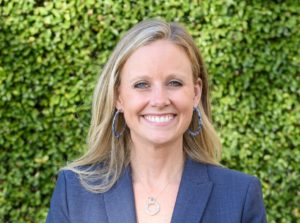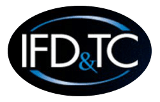| Monday May 23, 2022 | |
| Session 1 | 1:00pm-2:15pm, Eastern on Monday |
| 1A – All | Keynote – Unpacking Police and Community Relations and Lessons Learned in Los Angeles – Brianne Gilbert, Managing Director, StudyLA, Loyola Marymount University Invited Address Facilitator: Lindsey Witt-Swanson, University of Nebraska, Lincoln – Bureau of Sociological Research
In the wake of nationwide demonstrations for racial justice prompted by the murders of Breonna Taylor, Ahmaud Arbery, George Floyd, and countless other Black individuals, Los Angeles has become a focal point for critical discussions around police and community relations. Loyola Marymount University’s inaugural Police and Community Relations Survey by the Center for the Study of Los Angeles (StudyLA) focused on the attitudes and opinions of adult residents of the city of Los Angeles toward the Los Angeles Police Department (LAPD) following this period of nationwide demonstrations. With important implications as to how these results would play out, StudyLA navigated through one of its most challenging projects. The story of this survey and its corresponding data release describes how LA continues to grapple with many opposing and very vocal perspectives about policing, community relations, and DEI efforts in a city known for its historical issues with race relations. In this presentation, Brianne Gilbert, managing director of StudyLA and senior lecturer at LMU, unpacks the ups, downs, and lessons learned from this research and provides updates on the 2022 survey currently in the field. |
| Session 2 | 2:45pm-4:00pm, Eastern on Monday |
| 2A – Field | Data Collection Methods and Strategies Presentation & Discussion: Survey Methodology Facilitator: Tracy Keirns, University of New Hampshire Presenters will share updates and insights on sample productivity metrics, field operations, the complementary role that surveys play alongside other data sources, inclusivity obstacles, quasi-probability and nonprobabilistic approaches to selecting survey respondents, and other issues.
|
| 2B – Field | Addressing Challenges in Field Studies Presentation & Discussion: Survey Methodology Facilitator: Kurt Johnson, RTI International Field operations face ongoing challenges and lessons to be learned. The presentations in this section address numerous topics including variations in day and time of day in enumerating homeless locations, use of paper surveys in field work, adapting a field-based model to a fully-remote model, and using a representative sample to understand the scale of infections in the community population across the four nations of the UK.
|
| 2C – Field | Interviewer Training Presentation & Discussion: Center Management and Staff Training Facilitator: Jason Fiero, RTI International Presenters will share valuable techniques for evaluating, recruiting, and training new interviewing staff. Topics addressed will include effectiveness of remote training sessions; limits of remote training; training materials for a remote telephone workforce; use of eCourses; integration of Smartsheets, Microsoft Teams, and Zoom to manage virtual trainings; and supplementing initial training with micro-learning.
|
| 2D – Tech | Strategic Implementation of Technology Presentation & Discussion: Field Tech (Soft Tech) Facilitator: Orin Day, RTI International Get creative with new or existing tools to create system efficiencies and data security.
|
| Session 3 | 4:30pm-5:30pm, Eastern on Monday |
| 3A – All | Conference-Dog Millionaire! Roundtable Discussion Facilitator: John Stevenson, University of Wisconsin Survey Center Everyone is invited to join in for a fun gameshow-style session to cap our first day. Be the first to answer questions related to the conference and sit in the “virtual” hot seat and see how far you can advance. Use your “lifelines” to poll the audience for help or phone a friend. It’s just like “Who Wants to Be a Millionaire?” and “Slumdog Millionaire,” except without money or Bollywood musical numbers. |
| Tuesday May 24, 2022 | |
| Session 4 | 1:00pm-2:15pm, Eastern on Tuesday |
| 4A – All | (More) Notes from the Remote Field: Innovations and Lessons Learnt Panel Discussion Facilitator: Lilian Yahng, Indiana University Center for Survey Research A panel of representatives from an array of call centers will discuss innovations and lessons learnt — both technical and operational — since the transition to remote interviewing that the pandemic necessitated for many survey organizations.
|
| 4B – Field | Best Practices When Interviewing Minors Panel Discussion: Center Management and Staff Training Facilitator: Sarah Crane, UM-Survey Research Center (UM-SRC) Interviewing minors poses a number of challenges from gaining cooperation of the child (and caregiver) for long or difficult protocols, considering privacy and confidentiality (especially for older children with sensitive questions), and handling incentives to considering data collection and administrative or other protocols to avoid situations where the child could be at risk of abuse. We will discuss the following:
|
| Session 5 | 2:45pm-4:00pm, Eastern on Tuesday |
| 5A – Field | Improving Data Quality Presentation & Discussion: Survey Methodology Facilitator: Maureen Greene, U.S. Bureau of Labor Statistics Ensuring data quality is an ongoing issue. Come and learn more about dealing with unforeseen issues, provisions of real-time monitoring and intervention, data cleaning procedures, self-reported versus administrative data, data quality on a longitudinal study, the impact of CARI on monitoring data quality, and communication between managers and field staff.
|
| 5B – Field | Mode Choices and COVID Presentation & Discussion: Survey Methodology Facilitator: Kerryann DiLoreto, University of Wisconsin Survey Center Consideration of mode choice(s) is an ongoing issue and particularly during COVID. Presenters will provide insights on these issues including differences in response rates, selection of mail versus web modes, respondent characteristics, condition costs, CBPR, hard-to-reach communities, general population mixed-mode design, and transitioning from in-person workshops to a virtual platform.
|
| 5C – Field | Returning to Field Data Collection Presentation & Discussion: Center Management and Staff Training Facilitator: Rick Garvey, RAND Survey Research Group Presenters will provide timely insights on lessons learned and challenges in returning to field data collection. Topics addressed will include returning to in-person household data collection, health and safety protocols, staffing challenges, mailing in-kind gifts, and in-person protocols.
|
| 5D – Tech | Reporting Round-Up Presentation & Discussion: Field Tech (Soft Tech) Facilitator: Brian Harnisch, Wyoming Survey and Analysis Center Developing tools to enhance reporting, visualizations, and collect quality follow-up data.
|
| Session 6 | 4:30pm-5:30pm, Eastern on Tuesday |
| 6A – Field | Challenges in Engaging Underrepresented Communities in Survey Research Roundtable Discussion: Survey Methodology Facilitator: Mark Miazga, University of Minnesota – Office of Measurement Services Getting underrepresented communities and associated individuals to participate in survey research can be a challenge for a host of reasons. Come to this roundtable to discuss your center’s challenges, strategies that have been both successful and unsuccessful, and anticipated challenges and strategies for increasing response down the road. |
| 6B – Field | Navigating Your Career Path in Survey Research Roundtable Discussion: Center Management and Staff Training Facilitator: Kelly Elver, University of Wisconsin Survey Center Join us for a round table discussion of careers in survey research with senior staff from a variety of survey research organizations, as well as early and mid-career survey research staff. Hear about the personal experiences of those who’ve been in our field for decades, what early and mid-career staff are doing now to build their careers, and share your own valuable experiences in career building. |
| 6C – Tech | Tech Talk Roundtable Discussion: Field Tech (Soft Tech) Facilitator: Eric White, University of Wisconsin Survey Center Join attendees with an interest in the technical aspects of survey research for a special roundtable discussion. The open format allows for a range of soft tech management topics and current events impacting survey center technical operations. |
| Wednesday May 25, 2022 | |
| Session 7 | 1:00pm-2:15pm, Eastern on Wednesday |
| 7A – Field | Strategies to Improve Response Rates Presentation & Discussion: Survey Methodology Facilitator: John T. Baker, U.S. Census Bureau Learn more about techniques for optimizing join rates, breakoff rates, and response rates through various techniques including incentives, online survey panels, mixed survey modes, and others.
|
| 7B – Field | Working with Interviewers Presentation & Discussion: Center Management and Staff Training Facilitator: Mary Potter, U.S. Census Bureau Presenters will share the latest information on performance management, quality assurance, training, feedback and key considerations and challenges in managing staff and optimizing performance.
|
| 7C – Field | Small Shop Roundtable Roundtable Discussion: Center Management and Staff Training Facilitator: Lindsey Witt-Swanson, University of Nebraska, Lincoln – Bureau of Sociological Research Do you work in a small shop? Come discuss problems you face and solutions you’ve implemented given constraints in terms of size, budget, and organizational context. This roundtable will facilitate networking, sharing of ideas, and adapting to ensure that your small shop prospers. |
| 7D – Tech | Sample and Data Management Enhancements Presentation & Discussion: Field Tech (Soft Tech) Facilitator: Peter Tice, Agency for Healthcare Research and Quality (AHRQ) This session focuses on process improvements, protocol changes, and adjusting to the pandemic.
|
| Session 8 | 2:45pm-4:00pm, Eastern on Wednesday |
| 8A – Field | Contact Strategies to Improve Response Rates Presentation & Discussion: Survey Methodology Facilitator: Steve Coombs, University of Wisconsin Survey Center Presenters will focus on contact strategies including between-wave contact strategies, providing the web survey URL and login information on a paper questionnaire as well as the cover letter, use of pre-notification letters and effects on match rates, and others.
|
| 8B – Field | Changing Modes/Mixed Modes/Web Surveys Presentation & Discussion: Survey Methodology Facilitator: Alicia Frasier, RTI International Mixed mode and flexibility in changing modes continues to provide for the possibility of better response rates. Join us for a session that will examine potential benefits and costs of implementing mixed mode and changing data collection techniques across a range of considerations, including conversion from paper to web-based surveys, survey accessibility, expected and unexpected effects of switching to mixed mode, and mode and incentive differences in a multi-year survey.
|
| 8C – Field | Staffing During a Pandemic: Lessons Learned Roundtable Discussion: Center Management and Staff Training Facilitator: Vivienne Outlaw, UM-Survey Research Center (UM-SRC) The pandemic brought with it new challenges for hiring and staffing interviewers. Come engage in a conversation about what has been working and what has not worked in interviewer staffing efforts. |
| 8D – Tech | Managing and Monitoring Data Collection Presentation & Discussion: Field Tech (Soft Tech) Facilitator: Gina Cheung, UM-Survey Research Center (UM-SRC) This session discusses deployment of tools for increasing efficiency and ensuring data quality.
|
| Session 9 | 4:30pm-5:30pm, Eastern on Wednesday |
| 9A – All | Business Meeting (Eligible Attendees) Roundtable Discussion Facilitator: Kevin Tharp, Indiana University Center for Survey Research The Business Meeting is where we discuss the future of the IFD&TC, elect new organizers, and learn about the location of future conferences. Everyone from an IFD&TC member organization is encouraged to attend the Business Meeting. Member organizations include anyone employed by academic institutions, government agencies, or other nonprofit organizations. Apologies to our for-profit survey research organization attendees; we ask that you do not attend the business meeting. We welcome participation from first year-attendees from member organizations. |
IFD&TC
International Field Directors and Technologies Conference


